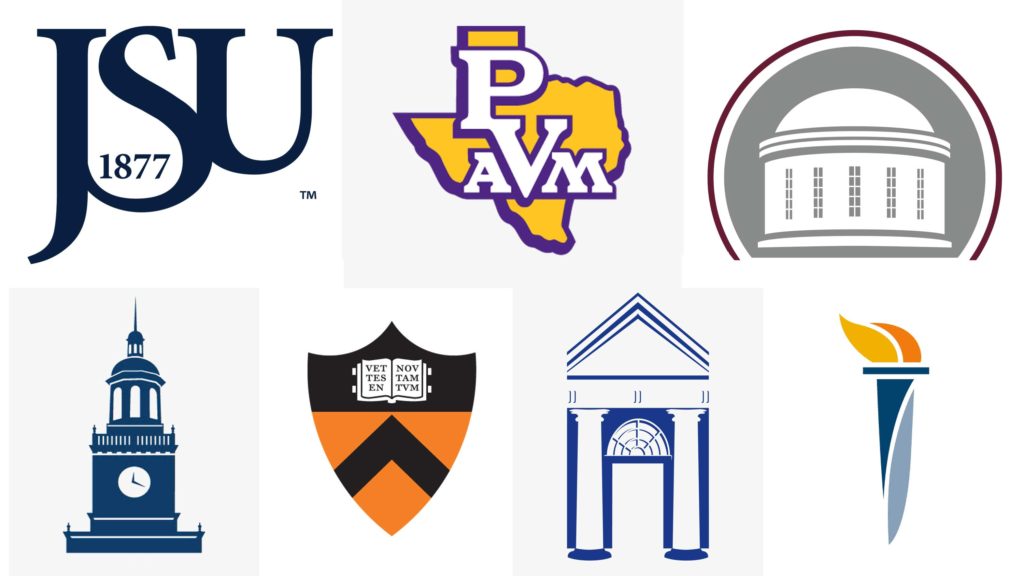
Ten research collaborations between Princeton University faculty and their peers at historically Black colleges and universities (HBCU) have been selected to receive support through the Princeton Alliance for Collaborative Research and Innovation (PACRI). These are the first projects to be launched through the groundbreaking alliance announced in May 2022.
Each of the collaborations will be co-led by a team of researchers from Princeton and one of five HBCU partnering institutions: Howard University, Jackson State University, Prairie View A&M University, Spelman College, and the University of Maryland Eastern Shore.
Spanning the natural sciences, social sciences, humanities, and engineering, the projects take up some of the most difficult challenges of our day, from cybersecurity to climate change to public health and the social safety net. The projects also draw on the diverse expertise and perspectives of the research teams, pairing academics from different disciplines.
“We started the Princeton Alliance to generate trailblazing ideas from collaborators who otherwise might not have the opportunity to work together — and researchers from across Princeton and our HBCU partners responded,” said Tod Hamilton, professor of sociology and a faculty co-founder of the PACRI program.
Rodney Priestley, also a faculty co-founder of PACRI during his tenure as Princeton’s former vice dean for innovation, is now dean of the Princeton Graduate School. Priestley anticipates ongoing benefits for the institutions and students. “An integral part of these projects is opportunities for student and faculty exchanges, which we see leading to innovative ideas with the possibility for shared intellectual property and even spinout companies. There could be many benefits for grad students just beginning their careers.”
UNCF (United Negro College Fund) partnered with Princeton to launch the program. Chad Womack, Ph.D., vice president of National STEM Programs and Tech Initiatives, said UNCF is delighted to be a part of this effort. According to Womack, “This initiative is helping to establish robust interactions between faculty at HBCUs and Princeton, and will open up the possibility of future research collaborations and partnerships.”
The 10 projects kicked off in September. Each project will receive funding from Princeton University for two years, up to a maximum of $250,000 per project.
University of Maryland Eastern Shore Projects:
A Framework to Better Understand Coastal Flooding in the Mid-Atlantic Region: How Groundwater May Play an Unseen Role in Climate Impacts to Estuarian Systems
Meng Xia, University of Maryland Eastern Shore, Natural Sciences
Reed Maxwell, Princeton University, Civil and Environmental Engineering and the High Meadows Environmental Institute
Dissecting Erysiphe Necator Infection Mechanisms and Vitis Host Responses to Improve Grapevine Powdery Mildew Resistance
Sadanand Dhekney, University of Maryland Eastern Shore, Agriculture, Food and Resource Sciences
Jonathan Conway, Princeton University, Chemical and Biological Engineering

